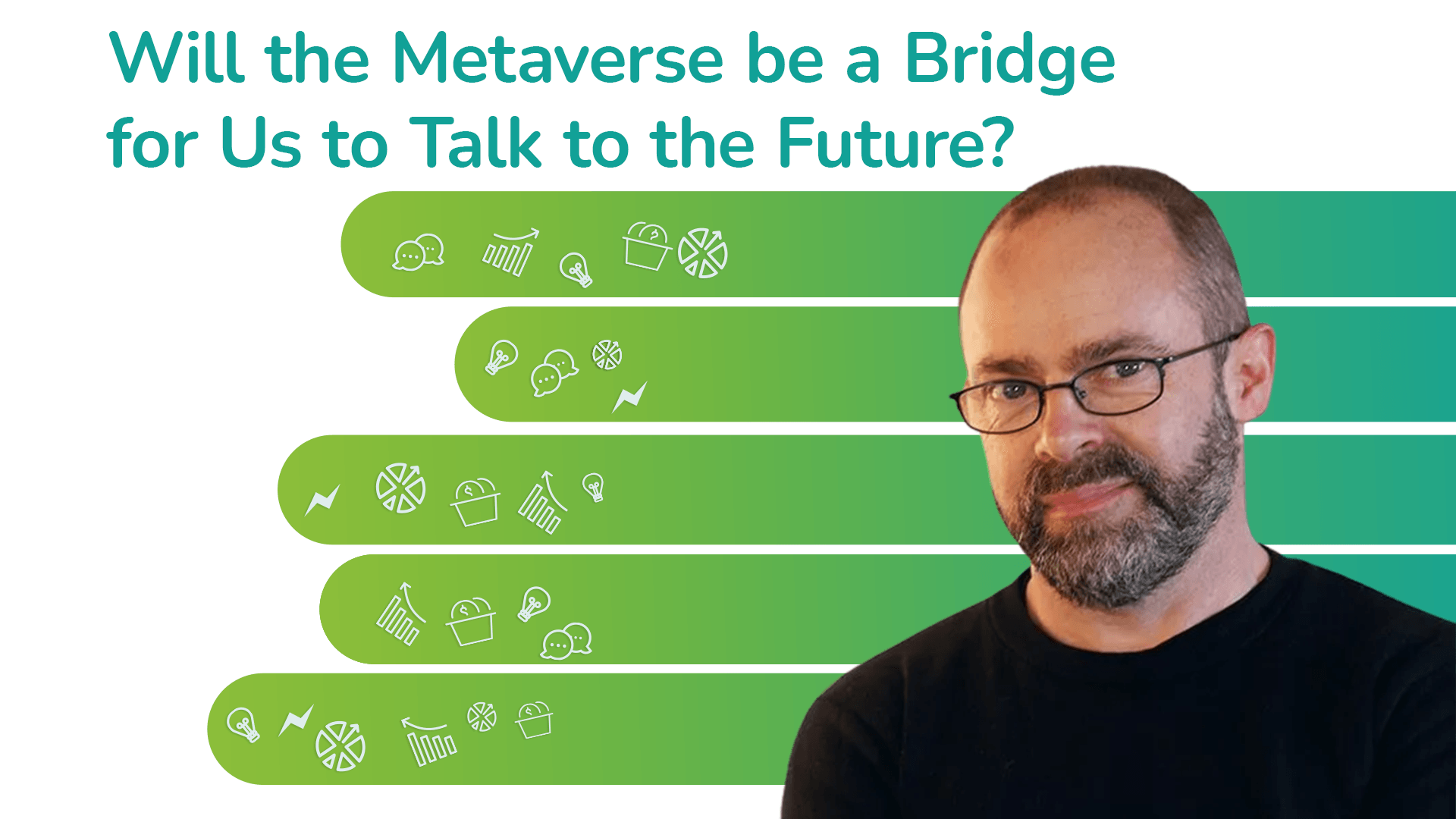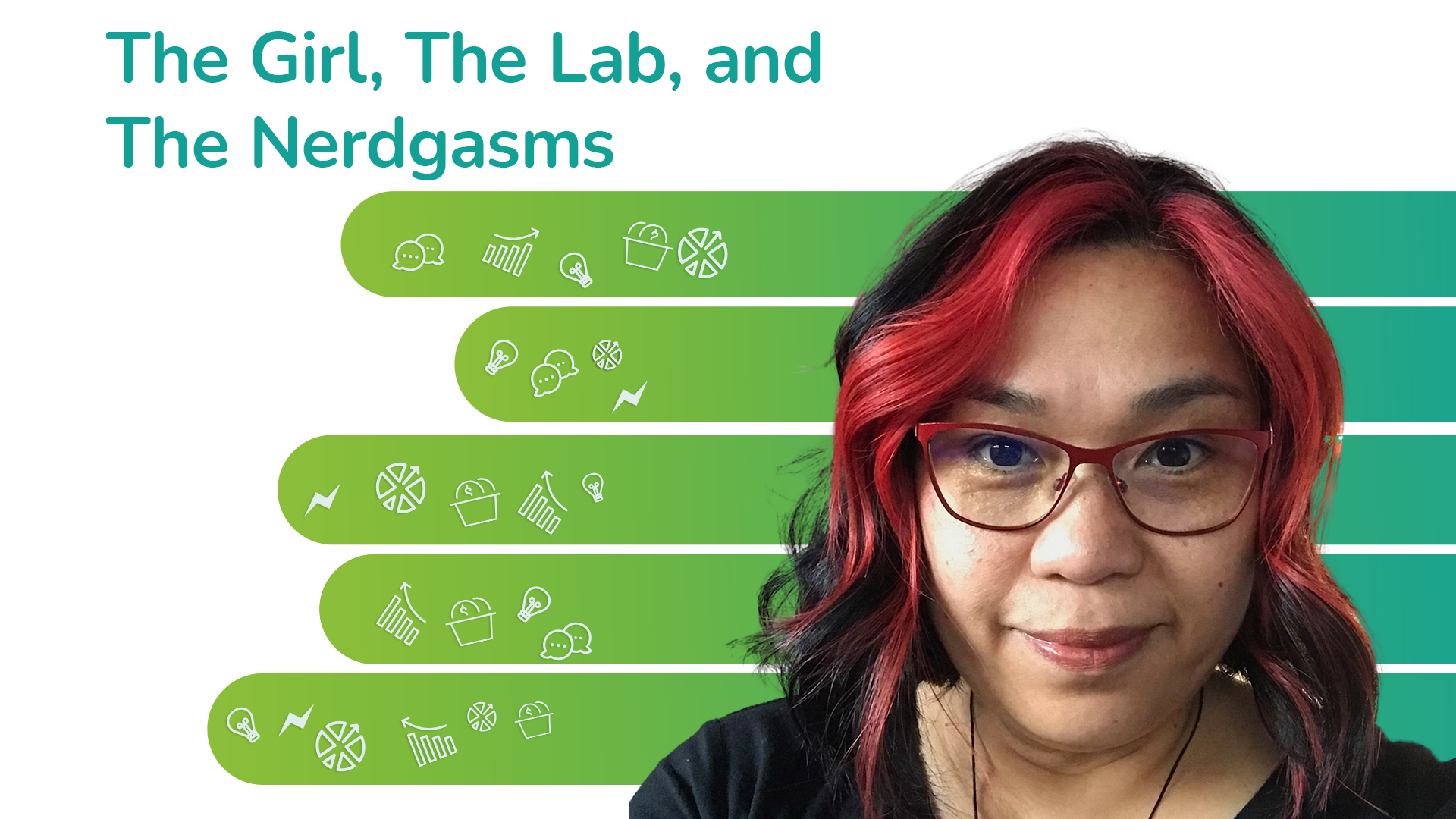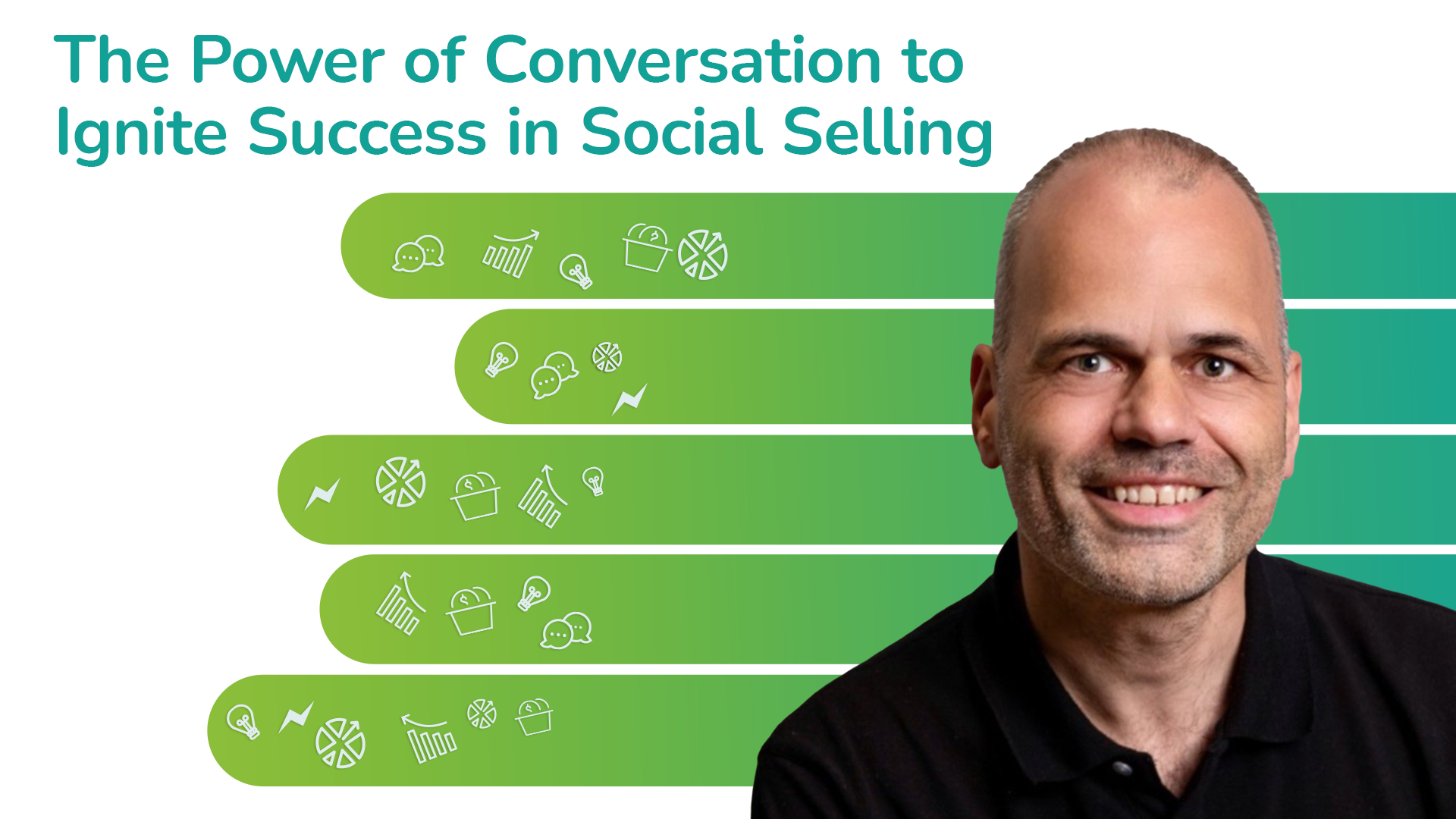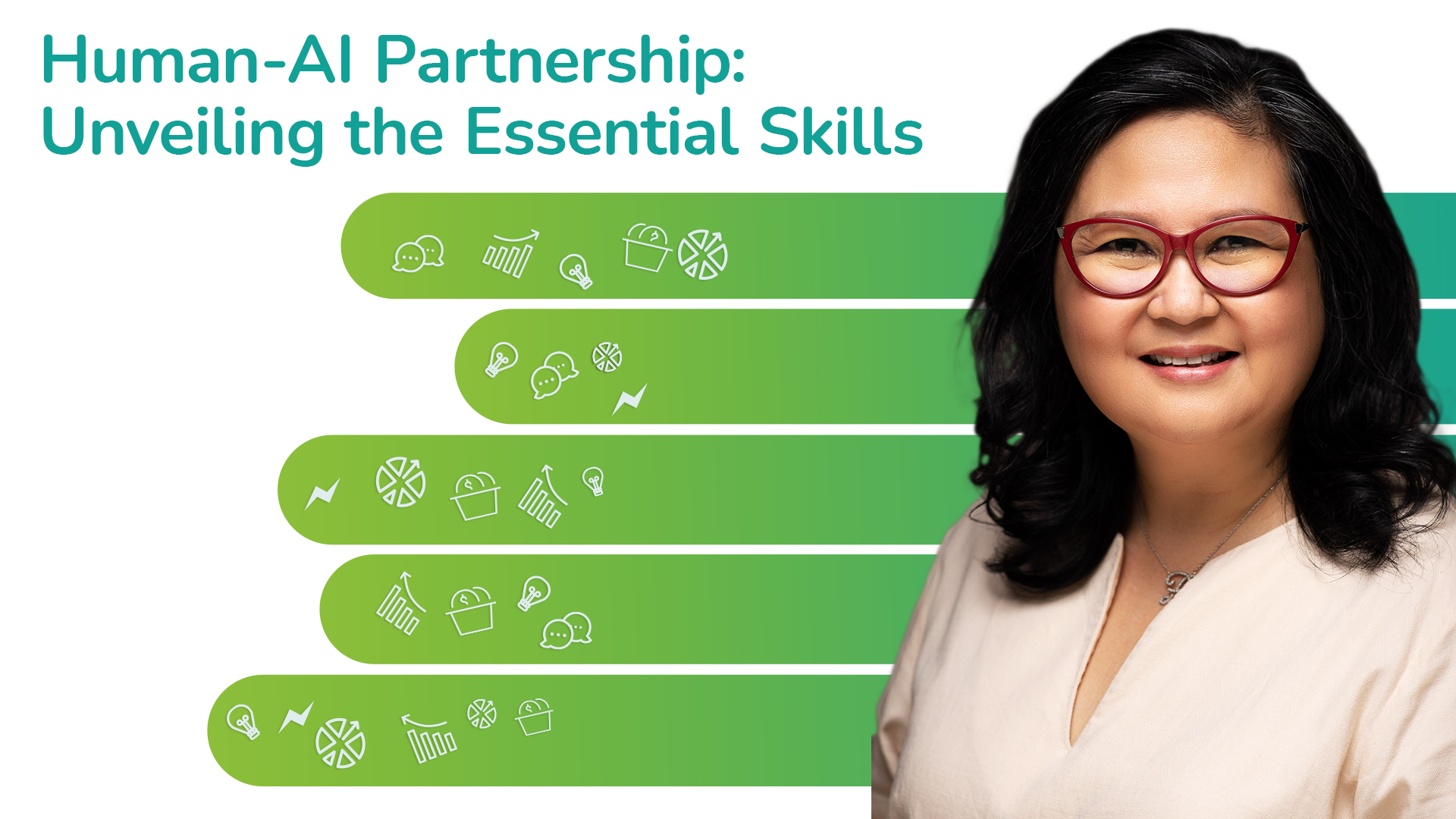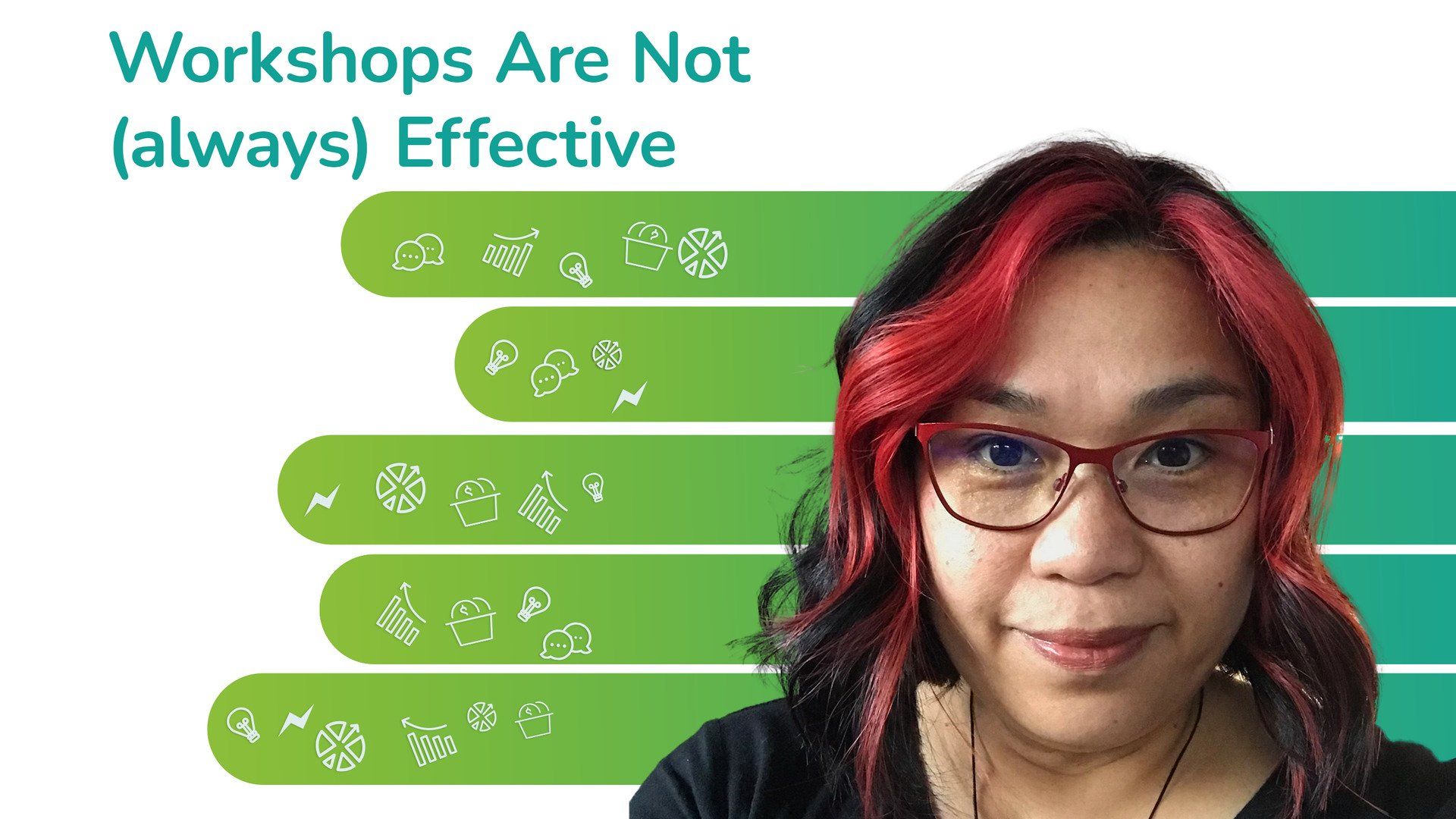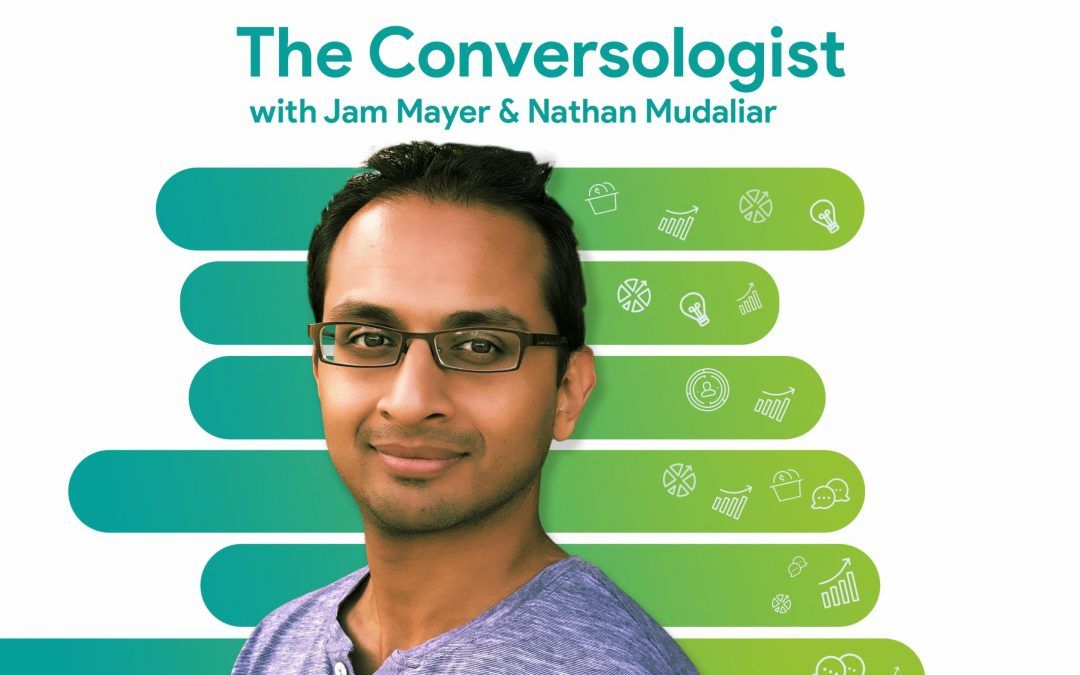
Season 1 Episode 7 | 17 minutes
When a thriving tech startup company decided to drop the word ‘chatbot’ from its lexicon, you know there’s something wrong. ‘Negative connotations,’ according to this developer. Chatbots were predicted to be the hype of the coming decade. So why the push-back, why the hate - or is it fear? Is it user ignorance, bad experiences, or something else?
In this episode, Jam Mayer and Rew Shearer try to uncover a few of the truths behind why ‘chatbot’ has become the new c-bomb, and let you make up your own mind.
Hosts & Guests
Jam Mayer
Rew Shearer
Episode Conversation
Topics that were discussed:
- Reasons why people hate chatbots
- PwC Customer Experience Survey around AI
- A Brief History of SmarterChild
- What works that will leave a positive experience for consumers to use chatbots
- How sales-y and marketing use of chatbots is short-term and a factor of the negative sentiment felt by consumers
- How do we change the tide and move the needle towards a positive one
Episode Transcript
Introduction
[00:00:04.260] – Jam
Welcome to the Conversologist Podcast, where we talk about the art and science of conversation in the digital space. We know that technology can be a powerful enabler in the customer journey, from marketing to customer service. But communication and emotional connection still need to be at the core. I invite you to converse with us.
[00:00:27.120] – Rew
This is Episode Seven. Why Do We Hate Chatbots? I’m Conversologist Rew Shearer, and with me is Chief Conversologist Jam Mayer. So. Recently a busy startup here in Auckland, whose core business is chatbot platforms and development, declared that the “C word” is off limits. Apparently chatbots have a negative connotation. Now, I don’t know, Jam, what would do they want to use instead?
Reasons Why People Hate Chatbots
[00:00:56.250] – Jam
Bots instead of chatbots.
[00:00:58.020] – Rew
Bots. I mean, we’ve we’ve had chatbots around since Eliza, the sort of creepily distracted conversational bot in 1966 that gave pretty incongruous, irrelevant answers to even just normal kinds of questions. And of course, popular culture has given the computer-generated intelligence a really bad reputation, right? HAL 9000 in 2001, A Space Odyssey. But chatbots today as we know them, I mean they’re anything but scary, right? I mean they’re efficient, they’re helpful. Many are intuitive. Some are even funny. Now, Jam, you’ve been a fan of chatbots ever since. You’ve developed and designed, built, more than a few. Here’s my question. Do people hate chatbots? And if so, why?
[00:01:46.590] – Jam
Well, there is a considerable, and it is rising, unfortunately, the perception of chatbots is skewing towards the negative sentiment. I do guest lectures and I do presentations and conferences. And there will always be someone, or a group of people, who will say, “I hate them,” “they’re useless.” “We should just go back and just talk to a human being. There’s no point of using this technology.”
[00:02:14.310] – Rew
Wow.
[00:02:15.210] – Jam
Yep. I mean, to answer your question, there’s a lot of reasons why people hate chatbots. There’s a few research papers out there. I mean, there are some organisations that have done their own small sample size. It was research by PWC, it was a Future of Customer Experience survey just recently, I think for 2017 and 2018. 59 percent of all the consumers feel that companies, so brands, big companies, have lost touch with the human element of the customer experience. And most customers hate A.I., which obviously chatbot is a part of that. Because organisations are using it to replace the human touch instead of augmenting it. And that’s huge. So one reason that they hate it is they just have a very negative experience. And there’s sub-reasons behind that.
[00:03:11.550] – Rew
Right.
[00:03:12.690] – Jam
One is: when you try to engage with a human being, let’s go back to the traditional way of doing it, you call or you chat with them, for example, on a website, and you have a problem that you want resolved. Right?
So that’s the expectation. Now, it’s hard enough talking to a human being, let alone a chatbot. And they get frustrated because the chatbot doesn’t give an accurate answer. “It’s not solving my problem. I just want to talk to a human being.”
The second thing that creates this negative experience is that it just doesn’t understand what the user is typing.
So it’s not intelligent enough. So that goes back to the technology, and the programming, and NLP and machine learning, right?
The fact that it isn’t ready yet, or it doesn’t have enough data for it to learn – going back to knowing that a chatbot, when it’s deployed, is still a baby and it still needs to grow up and learn – so the users get frustrated, because the chatbot just keeps on saying, “I’m sorry, I can’t understand that.” Aren’t you going to get pissed off and annoyed if that’s the only script that you’re going to get?
[00:04:24.180] – Rew
And of course, we’ve seen in the past with some chatbots as well, that they’re supposed to be activated by buttons. And what you find instead is that people intuitively type, and it seems to them like a perfectly straightforward, easy-to-answer question, but they get exactly that. “I’m sorry. I’m just new, I didn’t understand that.” So do you think that’s part of the frustration?
[00:04:45.670] – Jam
Yeah, that’s that that definitely is part of the frustration, for sure. I think that’s the biggest reason why people hate chatbots. Because it’s like, you know what, I’m just wasting my time. They want immediate response. They want to resolve their problem now. I mean. I’m the same. I’m a very impatient person, you know this, right?
[00:05:07.690] – Rew
Right!
[00:05:07.690] – Jam
So … If I need to change a flight, or whatever it may be, and if I don’t get a human being, I get frustrated. Sure. OK, a chatbot’s there. OK, fine. You’re a chatbot. Well, I need to do something. I need to change something. And if you can’t resolve it immediately, and my expectation is that immediate response, that’s why you’re a machine, then I get frustrated, then I hate it.
[00:05:30.460] – Rew
So do you think there’s a disconnect between the reality, then, of the fact that, well, getting close to two thirds, certainly over half of users dislike chatbots because they find them useless, or impersonal, or cold. And yet, particularly within business circles, there seems to be a lot of excitement, a lot of talk about “wonderful chatbots,” how they generate sales and they make us millions. And you hear all these success stories about chatbots. Do you think there’s a lack of understanding, or are they living on borrowed time thinking that it’s a successful formula?
[00:06:07.330] – Jam
They’re painting a very short-term picture of success. It’s successful to them because they see Open Rates, which is higher than email. Sure, it is correct, I mean, if we’re talking specifically for Facebook Messenger bots.
And unfortunately, these are the guys saying, “look! It’s really going to make you sales!” etcetera. I’m not saying it’s not true. It’s just that these are rule-based chatbots. Meaning they don’t have a lot of A.I. in it, or maybe none, and they just lead you to a certain path. So, yes, it may work for a campaign or two.
Maybe if you have a simple campaign, and you want to sell something, and then you nurture them, eventually for them to buy. But what’s going to happen is the same way that people are hating, say, social media marketing right now, wherein “oh, it’s all sell, sell, sell, and go through a funnel.” And next thing you know “buy now!” And you’re just pushing them to buy. And then after they buy, they’re going to regret it.
And then now people don’t like dealing with chatbots. The problem now is convincing the consumers, or the users, to actually use them in the first place. Example is the Schnauzerbot chatbot that we created. Do you remember?
[00:07:25.570] – Rew
I certainly remember it, because I scripted that dog as doggily as I possibly could. And yeah, you’re right. It’s not working as we may have hoped it would.
[00:07:35.780] – Jam
Yep. I mean, the scripting and the conversation was great. The problem now is that there was a gate. I call it a gate. Right. What was the gate?
[00:07:45.550] – Rew
The gate is right at the very beginning of the process, even before you get talking to the Schnauzerbot. So you haven’t had any interaction with it at all. It says, “would you like to talk to our friendly Schnauzerbot, or speak to a human?” Pretty much everybody opts, “speak to a human.”
[00:08:00.040] – Jam
Unfortunately, Schnauzerbot didn’t shine, because they’d rather just talk to a human being about something else. We are still trying to figure out the reasons why these people prefer to do that or not. It could be because they really hate chatbots, or they know that it’s not going to answer a question, or maybe “oh, it’s just going to be marketing and they’re going to sell me something.” Which is a shame.
A Brief History of SmarterChild
[00:08:23.260] – Rew
So this leads to my next question, something that you said earlier. You talked about, you know, based on on rules. They’re not complicated A.I. We know that A.I. chatbots can be incredibly successful. And we’ve recently been talking about SmarterChild, as early as 2000, which was an A.I. bot, and it was a conversational bot, and it was a very engaging bot, and it had, what, three hundred thousand followers? That was the AOL chatbot and people just loved it. Kids were coming home from school and telling it about their day, and if they got a bit abusive, it would gently tell them off. We know that it can work. So is the fault in that there’s too much easy chatbot technology, and people are being too lazy?
[00:09:09.420] – Jam
That’s a very, very good point. Look, I’m not a developer, right? So it gives us a chance, with more of the creators, to create those rule-based chatbots. Because there are templates, and just plug it in and just tweak it a little bit, and now you’ve got a box solution. And that’s really a problem. We’ve mentioned this already in our past episode. The experience is not unique enough, so they go on to “same thing again,” and people just don’t want to talk to them anymore. I guess the big message here is the technology is great, but please, please, please, let’s do it right.
Positive Experience with Chatbots
[00:09:45.940] – Rew
One of the things I was planning to ask you was, is A.I. The daunting factor? Do people feel afraid of A.I. because … sci fi and Stephen Hawking and everything else has heaped so much on A.I. as being this potential apocalypse for the human race? The evidence actually seems to be suggesting the opposite, which is that A.I. actually makes better, more effective chatbots, people prefer dealing with A.I. because it is actually more human, at least once it starts to learn. Obviously, as you say, if it’s a box solution, if it’s a low-cost platform, if you’re a small business and you just need a chatbot to answer your queries, you’re not going to have a highly developed AI platform. That’s not going to happen. So in your expertise – I’m going to use the “e-word” – in your expertise, Jam –
[00:10:34.520] – Jam
Oh, cringe!
[00:10:34.520] – Rew
– is there a workaround? Is there something you can do with a simple, cheap bot that actually starts to substitute for A.I.?
[00:10:45.590] – Jam
Obviously, we all know that if we want a really good A.I. chatbot, then it takes resources. Right. But if you end up doing a rule-based chatbot my advice is to start small. Find out your objective, whether it be lead-generation or sales or whatever it is, with personality, obviously, and create a conversation flow that is simple enough. So that the expectations are set, so the user knows exactly what the chatbot’s job is. And with that simple flow, you’re going to meet those expectations, and you’re going to end up with a positive experience. Start with a simple flow. Cut it all up. Don’t try to develop something from “welcome message” up to different branches of your website, for example, and then the person is going to be really, really confused.
[00:11:47.300] – Rew
Give them a gate at the beginning, yes or no?
[00:11:49.430] – Jam
I think based on our experience now, let’s not have a gate. Again, it depends on the objective. Let your chatbot shine. What that means is, encourage people to actually use it, and let them go through the experience. If you create the flow correctly, with the personality, and it’s a positive experience, it should be good.
[00:12:12.980] – Rew
One of the chatbots that we did do, which was Jenda, who gave the itinerary or the agenda for the social media conference NZ, actually got a great reception from the people who were there. And she worked pretty well. That was a positive experience, as far as I can tell. Almost overwhelmingly. There were a couple of people who managed to break it by trying to ask it where the beer was. But overall, it actually worked well. What do you think we did?
[00:12:38.540] – Jam
I mean, there were some technical glitches, obviously, out of our control. It happens with technology. But what we did right, here, is exactly what I said earlier. We set the expectation of the user. We told them, look, “I’m Jenda this is my job.” We put a little bit of humor in it and people smiled. And yes, there was a gate, in a way, but this was more of opting-in and making sure they’re OK to actually have a personal conference assistant, so to speak, Jenda, to guide them through the conference. Actually, some even said, “oh, I don’t have messenger, I really want to experience Jenda.” So we set the expectation. What they loved about it is, one of our surprises, it was easy for them to interact with Jenda. Because every time they went into a session, etcetera, then Jenda would say, “hey, how was Jam’s session?” Or “how was Rew’s session?” And it was just very simple emojis in terms of the feedback. We removed the friction. Does that make sense? So it was a positive experience. They were asking the next day, “how do we do this? Oh do we scan it again with a code?” “Hey, I missed Jenda, I forgot to scan it, how do we get her back?” Etcetera, you know, I mean, there were still a lot of logistics that we could have done, to educate the people during the conference. But that’s another story. But that’s what we did right. We set the expectation. We guided the users on what Jenda has to do. We made it simple. We remove the friction during their journey on the chatbot, and it said goodbye and that was it.
Negative Sentiment on the Use of Chatbots
[00:14:22.820] – Rew
One of the things you’ve said many times is that there’s this dissonance between expectation and reality. And most particularly, people expect a chatbot to be perfect. And they very much are not. Particularly the rule-based ones.
[00:14:37.940] – Jam
Yes, you want your questions answered, you want your problem resolved. There’s that expectation and they get frustrated. I’ve said this in my guest lectures, even human beings in a call centre, for example, answering questions. We get frustrated as well. Right.
[00:14:55.370] – Rew
I was going to ask what is the future for chatbots? Because obviously there’d been all this hype, chatbots are the next big thing in business, a fantastic tool, that future is chatbots … People are starting to hate them. Is the future chatbots? From what you’re saying, it sounds like actually this is just speed wobbles, right?
[00:15:14.160] – Jam
Yes. And there’s still a lot of benefits to a chatbot ,again, if done correctly. It is an art and science. It’s the creative, and the technology. You can’t say, ‘oh, I’ve got a great conversation flow here,” but it’s not feasible technology-wise then it fails. And vice versa. If the technology is great, yet you’ve got a really bad conversation flow, then it still fails. So both have to be really, really good. If there’s anything that I want people to take away from this episode, it’s not that you have to be scared of chatbots or you should hate chatbots. Here’s the point of automation for developers out there, and for conversation designers, etcetera, even the users. The point of automation is to remove the friction. I’ve said this earlier. It’s to remove the friction from customer interactions, and then to simplify and streamline the overall process. If you can do that, the sentiment, the negative sentiment is going to change into a positive one and people will use the technology even more.
Closing
[00:16:21.960] – Rew
Look, I think that wraps it up for this episode. What did you think? Do you love them? Do you hate them? Are you still on the fence? Do you think what we said was accurate? Do you think we made sense? Do you think we’ve identified it? We’d love to start the conversation with you. Thank you, Jam, so much, for all of your insights.
[00:16:39.000] – Jam
Thanks, Rew, for joining me as well, again.
[00:16:41.340] – Rew
If you’re an anchor.fm leave a voice message. If you found us on social or your usual podcast app, drop a comment. Or you can visit our page, theconversologist.show and tell us what you think. Thanks to you, Jam Mayer, for researching this episode. Music composed and produced by The Carlo Vergara: Google him. We will converse with you soon.

